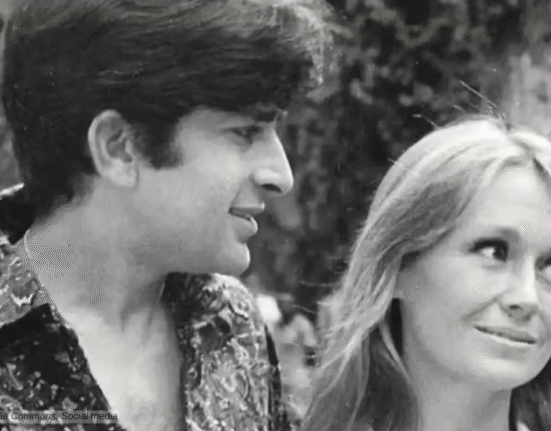Shiv Kumar Sharma, a virtuoso of the santoor, is an iconic figure in Indian classical music. He revolutionised the santoor, transforming it from a folk instrument to a prominent classical music staple. Sharma’s innovative approach and mastery have earned him global recognition, with a career spanning over seven decades.
Early Life
Pandit Shivkumar Sharma was born on January 13, 1938, in Jammu. His father, Pandit Uma Dutt Sharma, was a classical vocalist and a tabla player who introduced Shivkumar to music at a very young age. Shivkumar started learning vocals and tabla from his father when he was just five years old. His father saw the potential in the santoor, a folk instrument from Kashmir, and decided to make Shivkumar the first musician to play Indian classical music on the santoor.
Shivkumar Sharma gave his first public performance in Mumbai in 1955, at the age of seventeen. His one-hour-long rendition of Raga Yaman left the audience in awe. He recorded his first solo album in 1960, marking the beginning of a prolific career.
Shiv kumar Sharma and His Santoor

Pt. Shiv kumar Sharma is credited with introducing the santoor as a popular Indian classical music instrument. He modified the instrument by adding a new chromatic arrangement of notes and increasing its range to include three octaves. He also developed a new technique of playing the santoor to sustain a continuous sound. For “Call of the Valley” (1967), he teamup with Hariprasad Chaurasia and guitarist Brij Bhushan Kabra. the album is went on to become one of the greatest collaboration of Indian classical musicians.
He famously collaborated with fellow great tabla maestro Zakir Hussain in a number of albums and concerts, starting with 1982’s Mumbai Live, When Time Stood Still!.
Shiv Kumar Sharma in Films
Shiv Kumar Sharma’s journey into film music began when he crafted the background score for a scene in V. Shantaram’s movie Jhanak Jhanak Payal Baje (1955), featuring a Kathak performance by Gopi Krishna. Additionally, he contributed to the tabla accompaniment, including the popular song “Mo Se Chhal Kiye Jaaye,” sung by Lata Mangeshkar in the 1965 film “Guide,” on the insistence of S. D. Burman.
Shiv–Hari
As a music composer, he collaborated with flautist Hariprasad Chaurasia under the collaborative name Shiv–Hari. Their first film was Yash Chopra’s Silsila (1981), which is still remembered for its melodies like “Neela Aasman So Gaya,” “Dekha Ek Khwab,” “Yeh Kahan Aa Gaye Hum,” and “Rang Barse Bhige Chunar Wali,” achieving cult status over time.
They again collaborated with Chopra for films like Faasle (1985), Vijay (1988), Chandni (1989), Lamhe (1991), Darr (1993), and Prampara (1993). They also gave music to the Madhuri, Rishi Kapoor, and Sanjay Dutt starrer “Sahibaan (1993).”
Some of their most famous songs include “Faasle Hain Bahut,” and “Hum Chup Hain” in Faasle, “Baadal Pe Chal Ke Aa” in Vijay, “Aa Meri Jaan,” “Chandni O Meri i O Meri Chandni,” “Lagi Aaj Saawan Ki,” “Mere Haathon Mein Nau Nau Choodiyaan,” “Parbat Se Kaali Ghata Takraee,” and “Tere Mere Hothon Pe,” in Chandni, “Kabhi Main Kahoon,” “Morni Bagaan men Nache,” “Megha Re Megha,” and “Mohe Chhedo Na Nand Ke Lala” in Lamhe, “Ang Se Ang Lagana,” “Jaadu Teri Nazar,” “Likha Hai Yeh In Hawaon Pe,” and “Tu Mere Saamne Main Tere Saamne” in Darr, and “Sahiban Meri Sahiban” in Saahiban.


Personal Life and Accolades
A recipient of prestigious awards like the Sangeet Natak Akademi Award in 1986, the Padma Shri in 1991, and the Padma Vibhushan in 2001, he also got honorary citizenship of the city of Baltimore, USA, in 1985.
Shiv Kumar Sharma was married to Manorama. The couple had two sons, Rohit Sharma, who learnt Sitar and is currently an executive with Sony India, and Rahul Sharma, who is continuing his legacy as a santoor player.
Shiv Kumar Sharma died on 10 May 2022 from a cardiac arrest at the age of 84 years.
Shiv Kumar Sharma on IMDB














Leave feedback about this